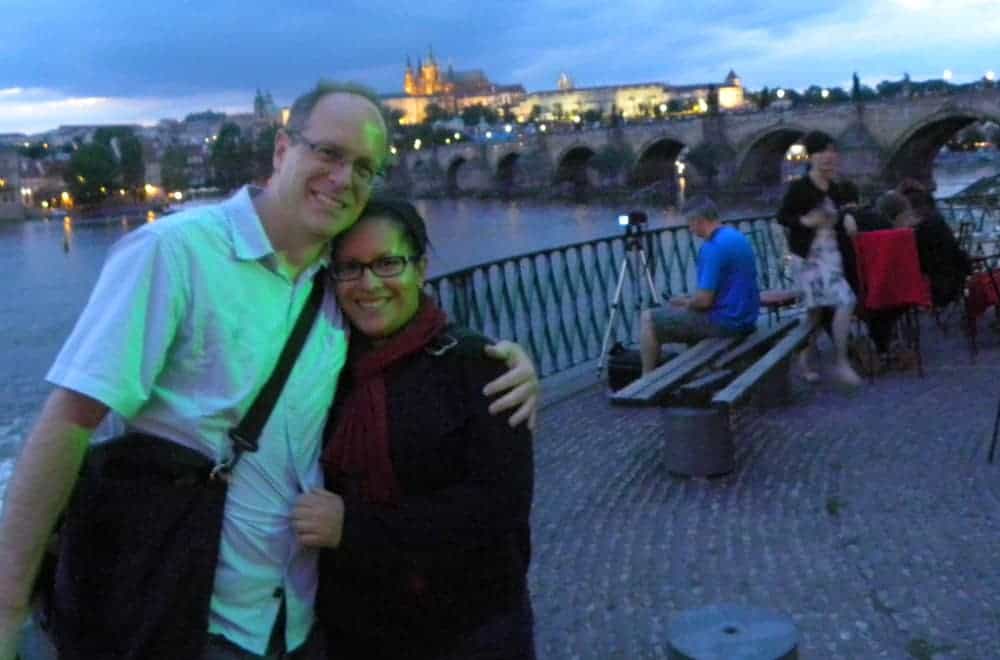
“How do you afford to travel full-time?”
It’s the most common question we get.
I’m going to disappoint a lot of people because there’s no one secret trick to financing full-time travel. If we’ve been able to travel full-time and live overseas over the last 10 years it’s been mainly through budgeting and being smart with our money. It’s also been by adjusting to many life-changes and taking chances with the various opportunities that have come along (we’ve had to re-invent ourselves along the way).
We’ve learned that flexibility and adaptability are the biggest assets a traveller can have.
This post covers all that.
The first 3 years (2014 – 2017)
Things were good but not ideal when we left Montreal to travel in 2014. We had investments, including a condo in Montreal and some locked-in retirement savings (I used to have a good paying job as the CFO of a Canadian exporter). Lissette was able to keep her job as a Director of Marketing when we set off on our travels.
But over the previous 2 years we had had some financial setbacks: a bad business investment, over-budget renovation costs on our condo, and some expensive dental work. We had gone from cash rich to having about $50,000 to pay off on our credit line. While our investments gave us a sense of security, the $50,000 hung over us. We were in our late 40’s and had uncertainties in front of us – we didn’t want to touch our investments and knew we had to be careful with our money if we were going to travel long term.
Looking for car Insurance? Check out the lowest quotes in Florida
During those first years of travel, 3 things made the difference
1) Lissette’s job. She was getting her full salary.
2) I had rented out my condo.
These 2 revenue sources added up to about $125,000 of income
3) We saved a ton of money travelling as nomads. Our first 3 months of full-time travel we stayed in Prague’s suburbs, paying about $600/mo in rent and utilities. The next 4 months were spent in Thailand where we averaged $300/mo in rent.
See this post which covers why we slow travel and how it saves us money.
Over those first 9 months of travel we saved nearly $4,000/month, paying off a total of about $35,000 of our $50,000 debt. We were able to save over half of our income, and that’s because we were travelling in cheaper countries and being careful with our money.
I reflect on the above because I see younger people in North America getting decent salaries but not being able to save because of the incredible high cost of living. I have a family member who makes $50,000/yr in Toronto but can’t really put any money away.
What if those same people could do those jobs remotely working somewhere else? One thing I always notice: North Americans don’t realize how expensive life is in their countries. Whenever we come back to Canada we’re shocked by the pricing.
If you have a decent paying job and can work remotely, you can save big bucks working/living somewhere cheaper. It took a little over a year to pay off our credit line – by year 2 we were debt free without ever having touched our investments. The next few years allowed us to splurge a little more, spending time in places like Japan, South Africa and Germany (but we would always be careful to offset those with places like Hungary, Romania, and Croatia).
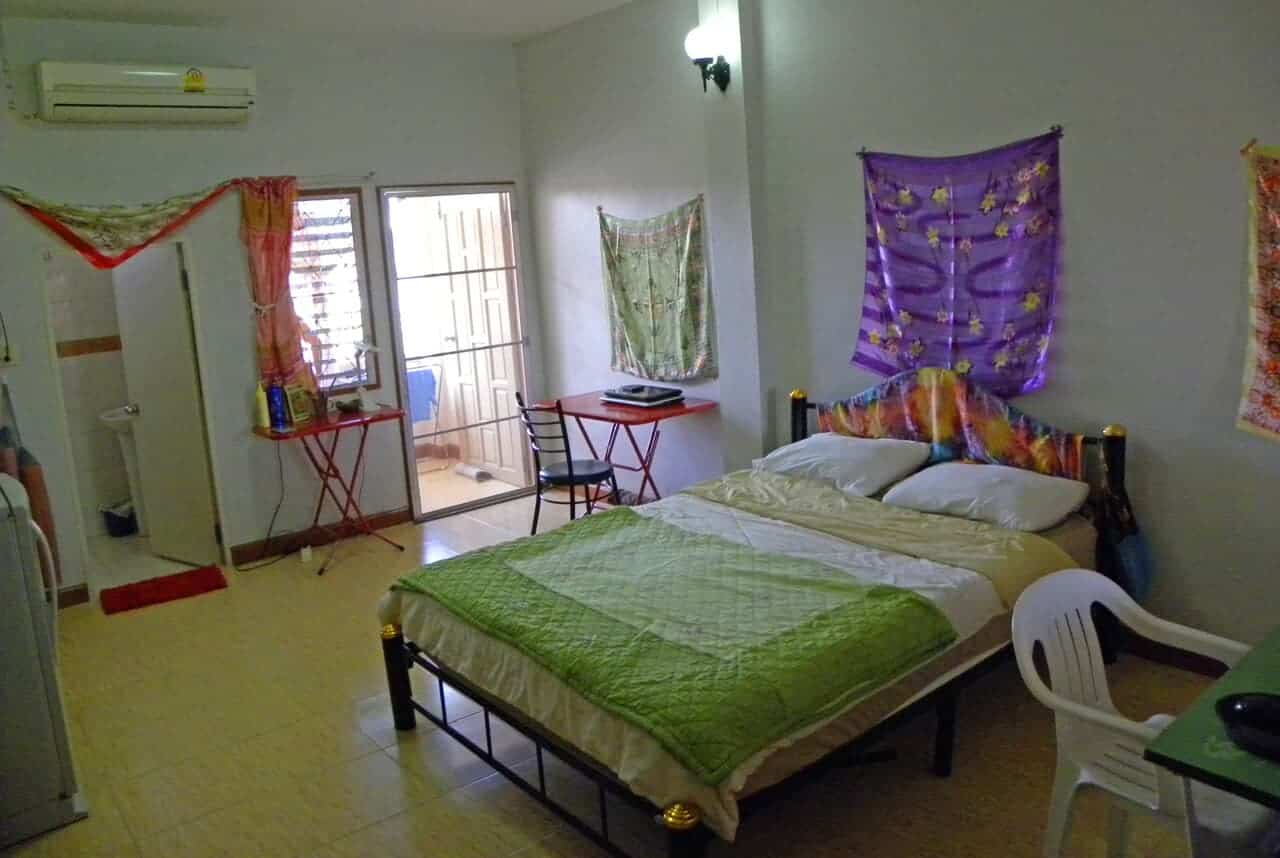
2017 – 2019
In 2017 our tenants in Montreal decided they were going to move out. We had to decide what we would do with the condo.
When we had left Montreal back in 2014 we had done so cautiously. We had rented out our condo and put all our furniture in storage. We had left open the possibility that travelling full-time might not be for us. Worst case we could have come back after a year.
We decided to sell the condo and invest the cash.
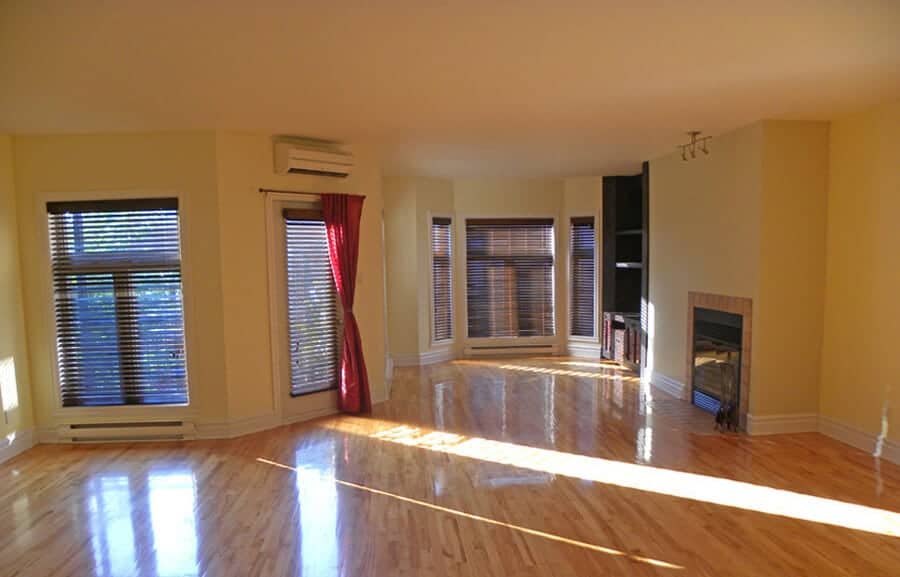
Looking back, it was a convenient decision because we knew at that point that we didn’t want to ever move back to Montreal. But financially it wasn’t the optimum decision. I had exchanged a risk-free, revenue producing asset for invested capital…and through much of 2017 and 2018 our mutual funds didn’t do much.
Again, it was Lissette’s job and our cheap lifestyle that financed our travels during that time*
*Your Budget will depend on a lot of factors. Through our 6 years of full-time travel we averaged total monthly expenses of $3,600 CAD (about $2,700 US at the present). About $3,200 CAD of that ($2,400 US) was made of travelling and living expenses: rent, food, air travel, travel insurance being the main expenses. The remaining $400 CAD ($300 US) were various fixed expenses such as life insurance premiums and storage charges on our furniture.
When travelling full-time, the largest expenses (rent, food, air travel) are basically variable so you can adjust accordingly. When we’ve felt that we’ve spent more than we should, we’ve adjusted by going to/staying in cheaper locations for longer periods. 4 months in South East Asia or in Eastern Europe will make a big difference in your budget. On the other hand, your budget can easily be double ours if you spend your time in Western Europe or North America and book accommodation for short periods.
Related: How much does it cost to have a nomadic lifestyle?
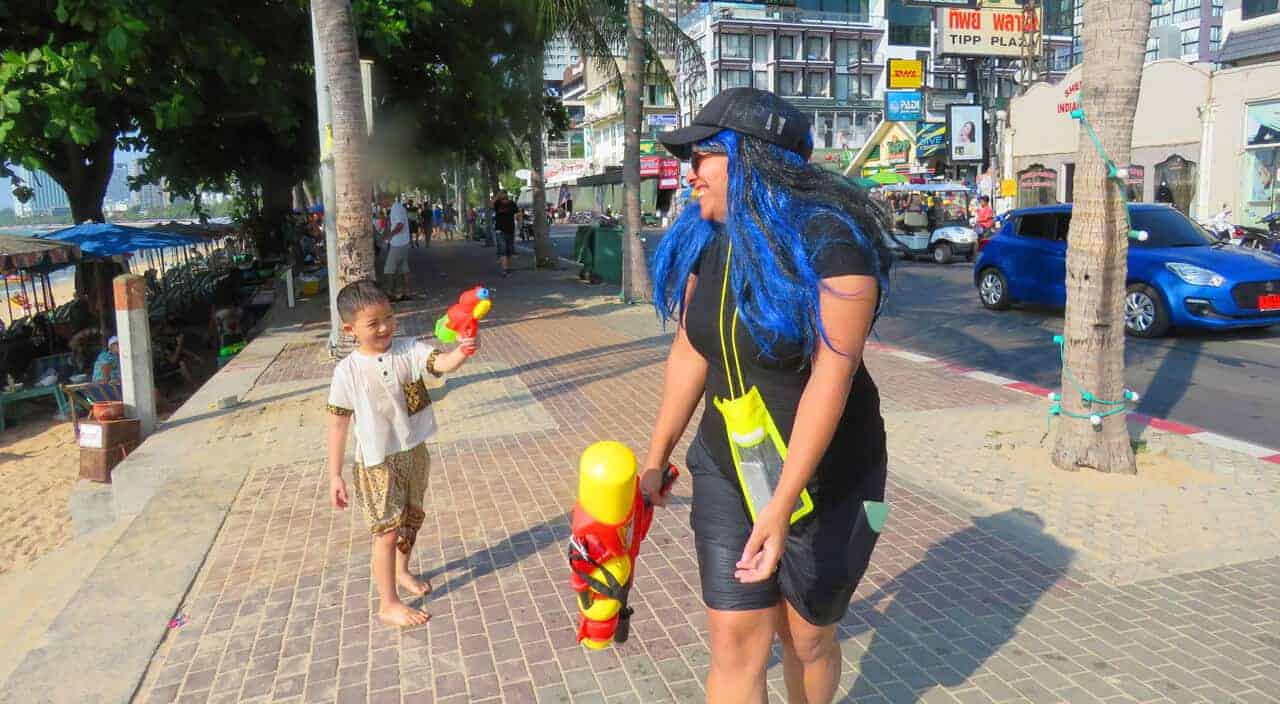
2019 – 2022
In early 2019 Lissette lost her job. It wasn’t a huge surprise. The industry she’d been working in had been suffering for years and we’ d always figured it was a matter of time. Still, it was a bit of a shock. We were in our early 50’s and had good savings – but it was still early for both of us to be retired.
Again, the flexibility to choose our destinations (and on the way we get there) can make a life of full-time travel inexpensive. We spent most of 2019 in the Balkans (which is inexpensive in the off-season). In high season, when prices around Europe always go up, we went to Ukraine and had a fantastic summer in Lviv (where we spent less than $600 US/mo in rent). We didn’t have any intercontinental flights, instead travelling around Europe and the Caucasus using a mix of budget airlines and trains. We kept expenses down.
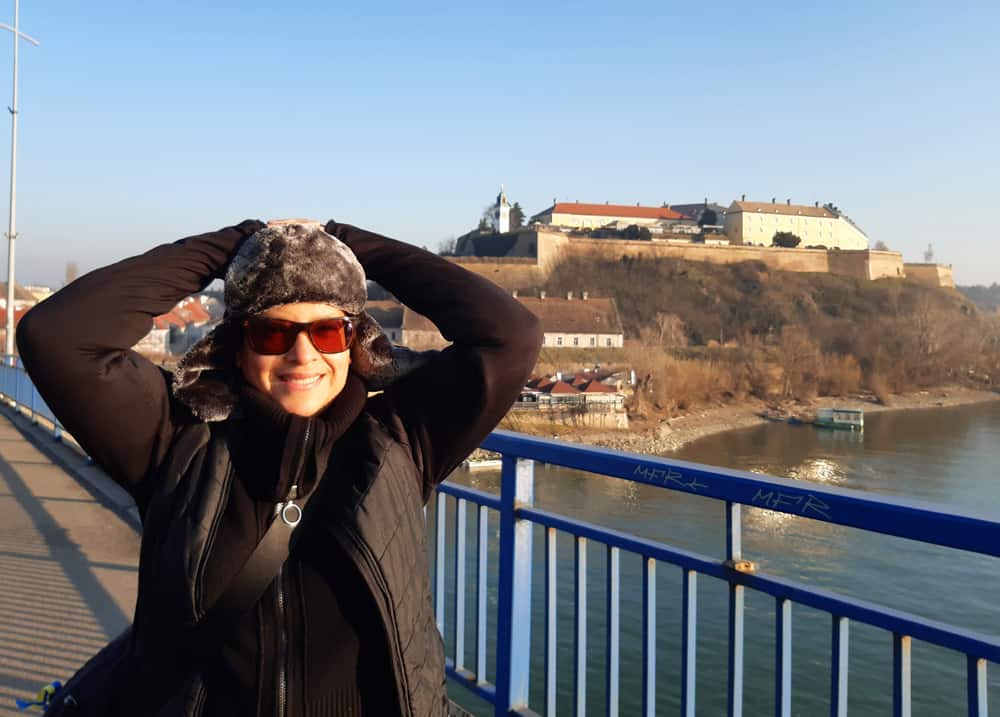
After not-so-great returns on our investments in 2017 and 2018, we had 10% returns in 2019 and 2020.
Finally, Lissette losing her job meant monetizing this blog. I had started The Travels of Bbqboy and Spanky as a hobby (and as a means to document our travels) back in 2013. With Lissette losing her job, I decided to get more serious about it.
I decided to use the blog to springboard into Freelance writing. I harassed most of the major Canadian newspapers about writing for them. It paid off. I wrote for The Globe and Mail, Vancouver Sun, Montreal Gazette, Toronto Sun, Edmonton Journal, Calgary Herald and a bunch of other Canadian dailies. Nobody will get rich doing freelance writing. But Freelance writing helped us out.
2022 – Present
A lot of people think it’s really easy to start a blog, get monetized, and make lots of money. Nothing could be further from the truth. As I said, for many years this blog was strictly a hobby. It was my creative outlet and honestly I don’t know what I would have done without it: I had retired/been fired when I was 44 and I needed something to keep busy. That was the blog.
In 2020 we decided to put full-time travelling on hold and settled down in Spain. So we started a 2nd blog “Mapping Spain“.
Everything changed in 2022 when Lissette decided to help me out with social media on the blog. That was a blessing because I absolutely HATE social media. And although her prior marketing job had nothing to do with social media, “marketing is marketing” (as she always says).
From there things took off. Today we have two successful blogs that are monetized.
We now work as a team on the blogs. We make nowhere near the money that either of us did when we worked and we probably work twice as hard now as we ever did. But we work together, we work for ourselves, and we’ve translated something we love (travel) into our own business.
The future
As I mentioned at the top, flexibility and adaptability are the biggest assets a traveller can have. We’ve worked remotely, we’ve done freelance writing, we’ve turned a hobby into a business. 10 years later, we’re in a better financial position than we were when we left Canada.
Where will we be 10 years from now? Who knows but one thing I’ve learned is that you can’t take anything for granted. Many years ago, before leaving Canada, I did a TEFL course. I can, in theory, teach English somewhere.
And if all that doesn’t work out? We always have a full-time travelling lifestyle we can fall back on. We could pick up in a minute and go to Nong Khai or Prachuap Khiri Khan or any other little Thai town knowing that we can live there on a very small budget and still be happy. If there’s one thing we’ve learned over the last 10 years is that travelling doesn’t have to be expensive.
This post has only covered the financial aspects of travelling full-time. I haven’t mentioned how we’ve loved our lives over the last 10 years. We’re happier and healthier, both mentally and physically, than we were in 2014 when we started travelling. We’ve given up some stability for that – but it’s all been worth it.
If you enjoy reading the blog, please keep us in mind when booking hotels, flights, tours or car rentals. It doesn’t cost you anything and it helps support us in travelling and writing the free content you see on this blog. This pagewill help you out with that.
Thanks for your continued support!
Related: Regrets of living a Nomadic life
Related: Jobs for People Who Love to Travel
Related: The absolute worst thing about being a full time traveller

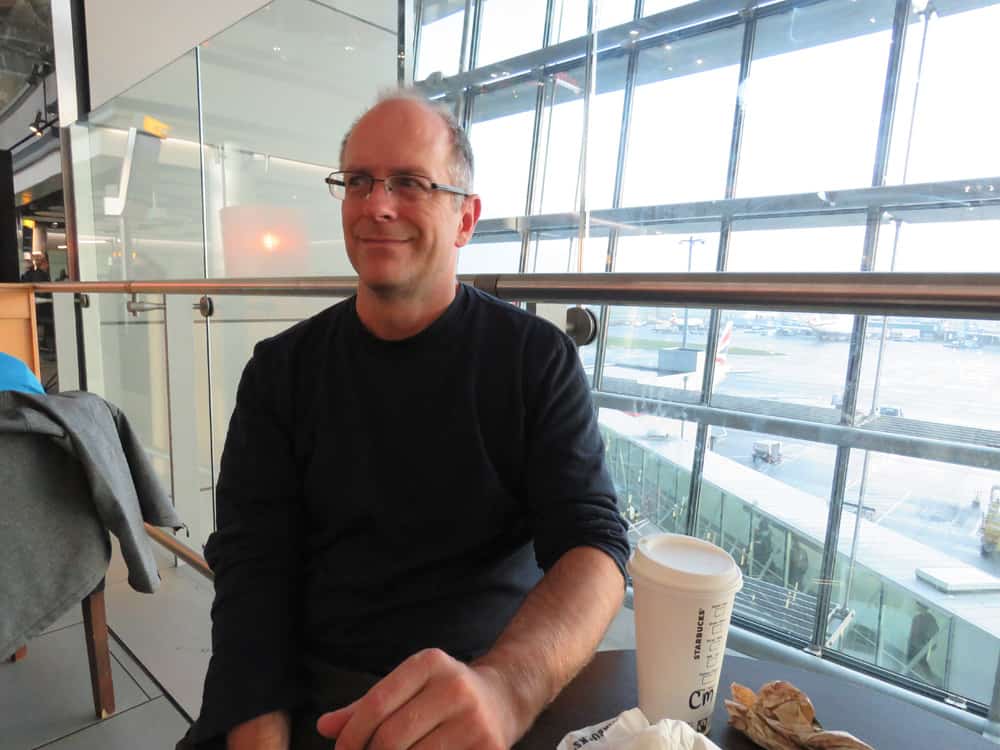

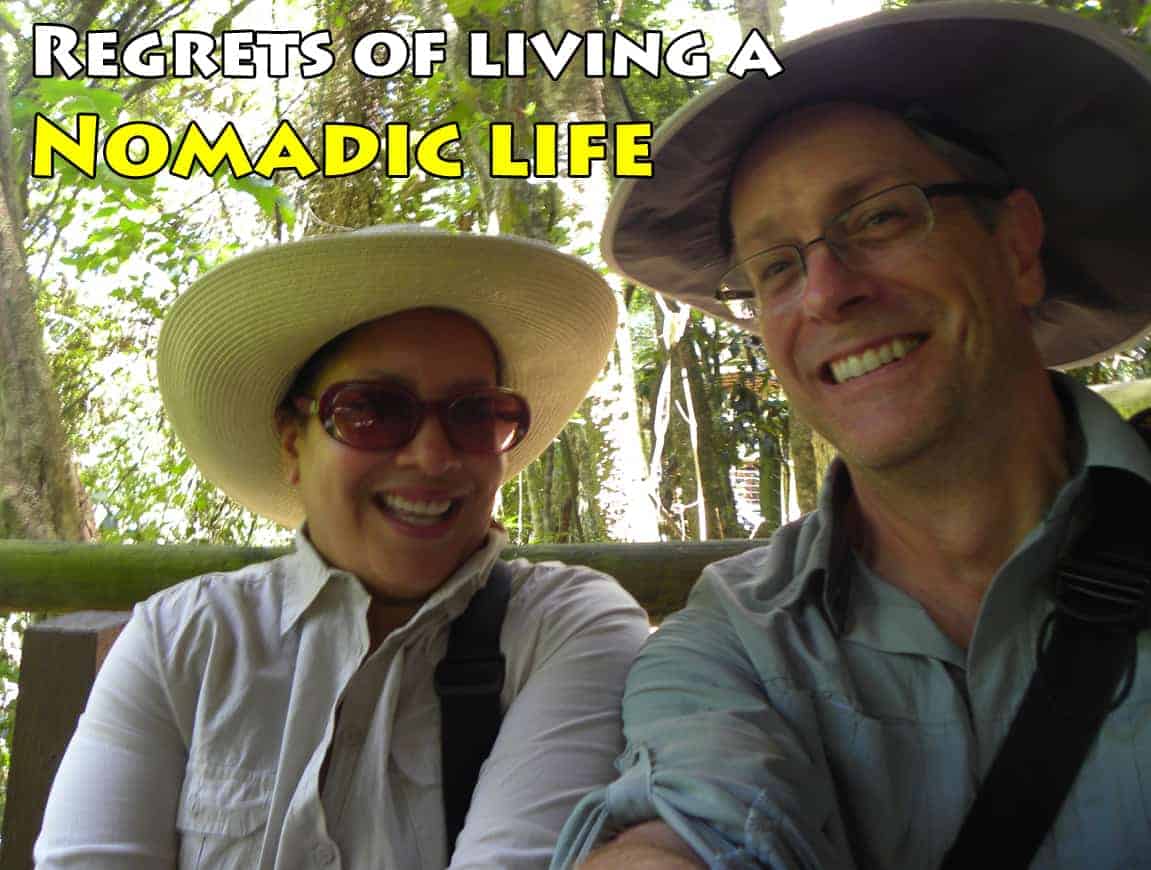
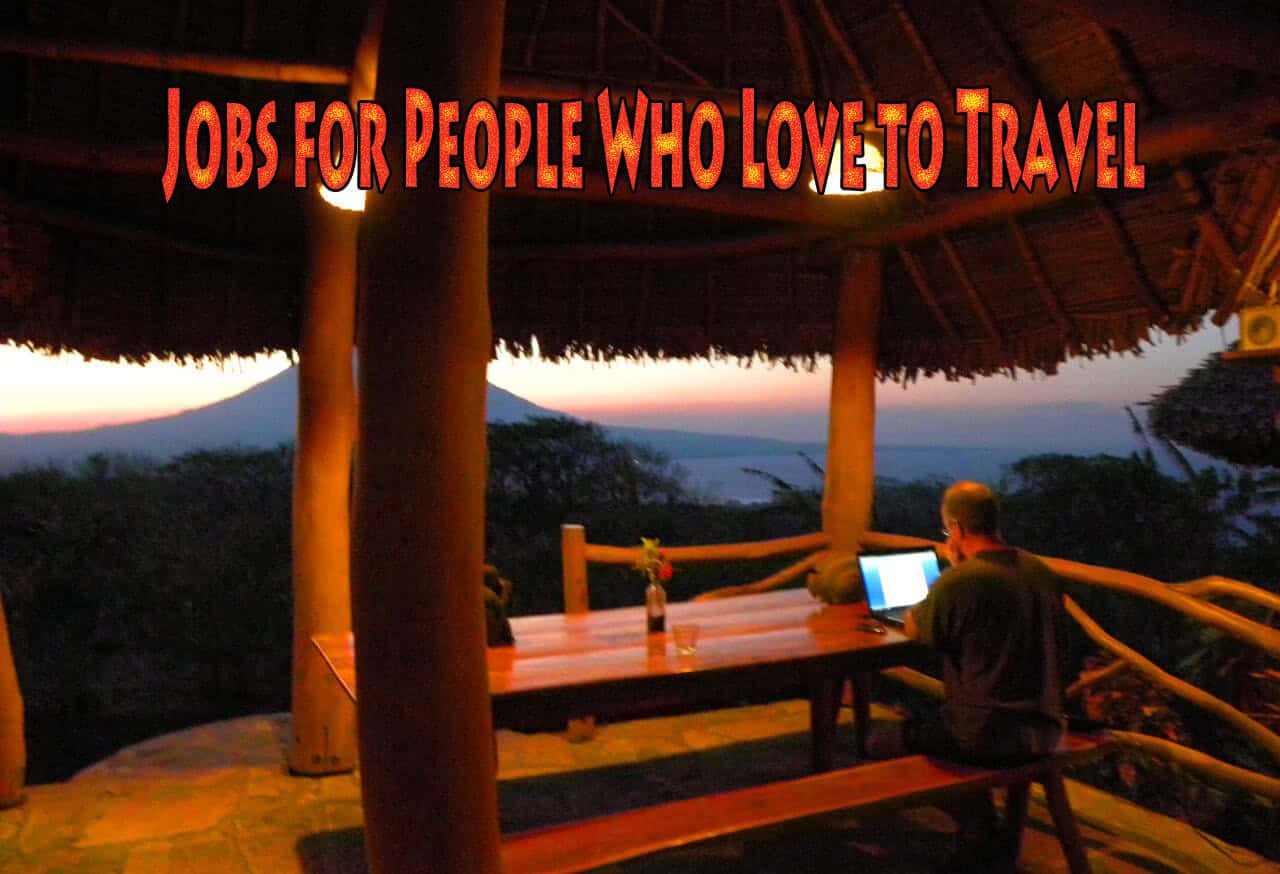
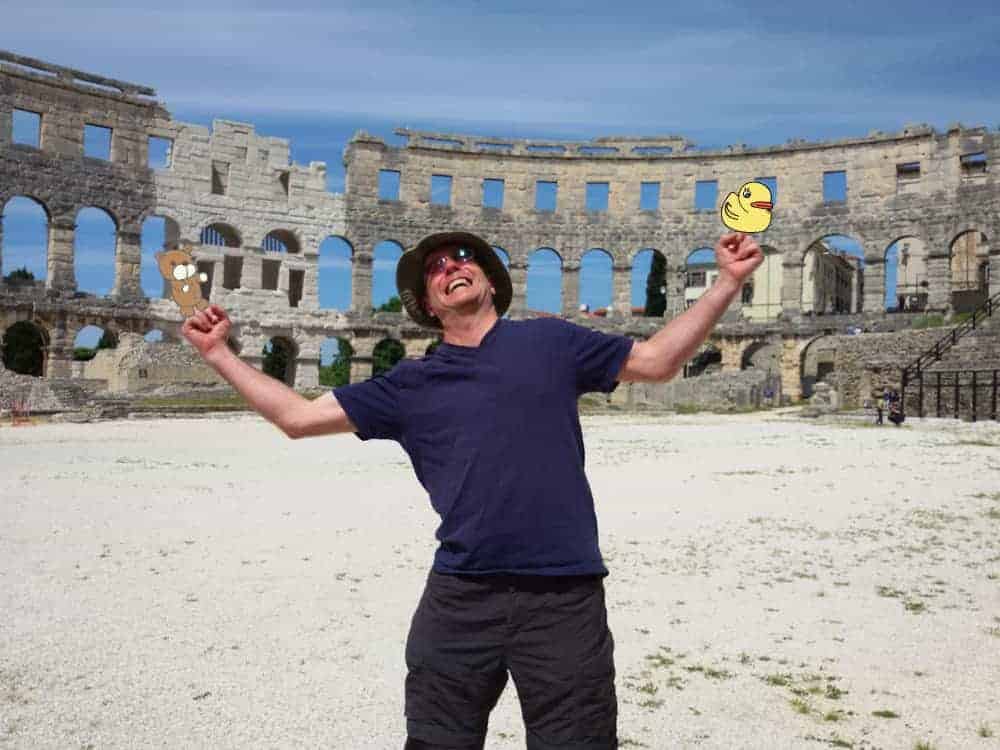
Good morning,
I just came upon your blog and can totally relate. Having been international teachers (I still am) we have been blessed to live in 13 different countries. We are currently in Krakow, Poland. We are considering what to do next when I am ready to move on to teaching. Spain is our next destination hopefully. The idea of managing an Airbnb is very appealing. Could you suggest how we could find information regarding this possibility?
Warm regards,
Christine
Hi Christine,
I’m sorry I don’t have a lot of details and knowing what we know now, I don’t know if Spain is the place to run an Airbnb. The biggest issue is squatting – that is people staying in your place and not leaving. As an owner you’re stuck and most people end up paying them thousands to leave. So you have to be very careful who you rent to.
Other than that, you have to register with the city to rent (ie get a permit) and register to pay taxes. It’s best to consult with a local tax adviser who can set you up.
I’m sorry the above is not more positive but there is a lot of bureaucracy in Spain.
Let me know if there is anything else I can help you with regarding Spain. We’re approaching our 3rd year here and it is a great country to live.
Great blog.
This is what is plan for us too – my husband and I. Difference is we are out mid 60st, but stuffed storage in San Francisco and now we are in Mexico. Plan is to try Portugal and Georgia. Which Balkan courtiers would you recommend as budget friendly, given all we got is SS? And yes, I am looking for remote work too. If I succussed this will help us with travels.
Hi Nana. You might want to look at this post: https://bbqboy.net/our-experience-shipping-belongings-from-canada-to-europe/ AGS did a great job with us.
I just happened to find this post. Frank, what do you mean by “monetizing the blog”? I am retired in the US. Kinda well situated. Not rich, by any means. But I have all this knowledge about travel, miles and points that I would like to start a blog. Starting a blog isn’t the issue. But I wonder if I could make it worth the time that I would spend on it?
Monetizing – signing up to Mediavine for ads and also working with affiliates so that I get commissions on hotel, flight and tour bookings.
One thing I’ve learned is that it is never worth the time. I’ve put in a ton of hours on the blog and what I make in a month pays the rent but not more. Really, if you’re going to blog you have to do it because you love to blog. Eventually you do get traffic and you do make money. But by then most people who’ve gotten into it for the sole purpose of making money have long given up. Very few people who started blogging at the same time I did are still around. You have to enjoy blogging.
Understood. I kinda figured that it you really need the desire to document your life more than making money.
I always enjoyed writing and taking photos – so when we planned to travel the world it was just the perfect outlet for my hobbies 🙂
Nice post Frank and good to hear you guys are doing well. I’m still around! (formerly Travelling Type). Just rebranded and doing new things – planning future travels again too. Glad you guys have made it work!
Hi Andy! I saw you subscribe and remembered you immediately. I hope you’d doing well. And I see you’ve done some travelling in Spain. Nice to hear from you again!
I always wanted to ask about your financial sources, but I was embarrassed. Now you wrote it yourself. Thank you.
Nothing magical, just a real estate and a telework. Perfect.
I have been worked remotely like a translater since 2000, and this is the best operation mode for me. With all these modern technologies and gadgets, my work is always with me in any place with the Internet.
Good luck to you both.
Ah, a translator! I thought you were a personal trainer Victor. So you can basically work from anywhere.
I think finances are something everyone is curious about. And people don’t want to write about it, which doesn’t help people. I recently had someone ask me if she could possibly live in Spain on 50,000 Euro a year. Of course you can, you can have a great life on that kind of money. But when people don’t talk about money it’s hard to get an idea…
A personal trainer is my second profession, and I worked in a gym for five years. But I decided to leave that work because it made difficult my travels and forced me to go to the work physically.
The third my proffession is web-designer and SEO-optimizer, and it allows me to work anywhere.
And the last, I have two online shops which give me some income, although unstable.
I wrote all that to answer frankly to your frankness.
Ha! You are the man of all trades Victor, like Superman.
Thanks for the post. I’m also planning to travel full time in the nearby future and so starting to get the finances in order to be able to do so. Always nice to see how others are able to make that happen 🙂
Good luck Felipe. If you ever have questions don’t be shy to write me personally.
Great read and must say again good for you both! My husband and I the same when we retired early six years ago, discovered what a great adventure it was to travel full time. To figure things out as you go along re spending more in some places and much less in others. There are trade offs everywhere, it’s all in how you choose to look at things in many cases. May people are not willing to do those trade offs and that’s okay. As always I enjoy reading your blogs and hope your time in Montreal goes by quickly before you are able to head back to Spain. We were fortunate to land in Montenegro in February and then we just stayed because of the virus situation. It’s been a wonderful place to be “stuck” 🙂 What a fabulous country to explore with lots to do in the meantime. Swimming in the Adriatic everyday this summer has been a special treat for both my husband and I, no other tourists and meeting wonderful Montenegrin people. Take care for now. Stay safe.
Thanks for the comment Estelle. You are absolutely right, it’s all about tradeoffs. I hate hearing someone with a BMW and a huge house whine about how lucky we are to live our lives – obviously we gave up a few things to be able to travel. It’s all about what is most important to you.
thanks for sharing such immense detail Frank, it’s really interesting how you’ve balanced everything out and at the end you summed it up – you are happy with your life and nothing is more important than that and that’s testament to what you have done
Thank you Andy 🙂
Regarding making money, teaching English online is a decent source of supplemental income. I have been working for a company for almost 20 years and passed retirement age 5 years ago. (Expat American/currently Swedish citizen) I know they have teachers in Spain where there is a large British expat population. I don’t know what the hourly wage is in Spain for the company I work for but I am guessing working part time (60 hrs a month) would bring in maybe 500-600 euros a month. (I believe the non-lucrative expat visa in Spain allows remote work.) As for getting qualified, a TESOL certificate is about all that is needed. Plus good people skills and some flexibility. Strong and reliable internet is a must, of course, since classes are video. Teachers facilitate conversations based on PowerPoint materials for the topics. There are both group and one-on-one classes. If anyone is interested, I would be glad to provide more information.
Thank you Edith. You know, I actually obtained a TESOL certificate about 15 years ago (at work, when bored). I even got a further certificate in business English. It’s long been forgotten and I’d have to look at it all over again – but it’s something I could look into if I ever want to keep busy/make a bit of money.
The non-lucrativo doesn’t allow anyone to work for a Spanish company. But as you say, don’t think there are any restrictions on remote work.
Thanks again 🙂
I forgot to mention the social aspect of teaching online. I have met a variety of wonderful people from all over the world and have visited several of them. In Japan this opened doors to experiences that I probably wouldn’t have had otherwise, like being taken to an apple orchard outside of Matsumoto to pick Fuji apples the size of grapefruit, which by the way, were the most incredibly delicious apples I have EVER tasted. 🙂
That’s very nice Edith!
One thing we’ve enjoyed through the blog is meeting different people online, it’s part of the reason we started doing it in the first place. So the social aspect is important and I appreciate that brought that up.
PS. I saw those apples in the supermarket when we were in Japan. Huge…and very, very expensive.